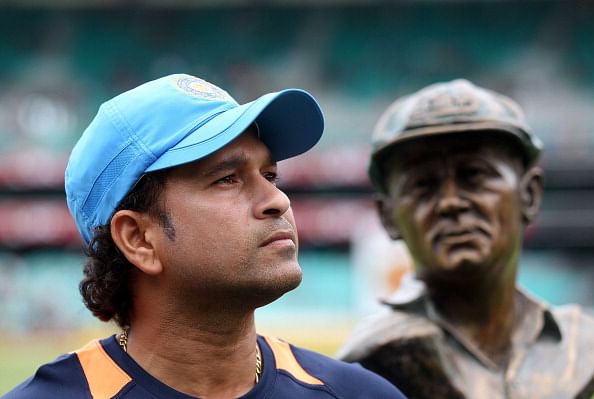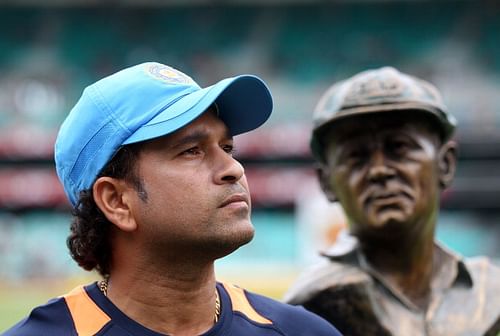
The retirement Syndrome

The other day, on another sunny afternoon at Chennai, I was out there at the beach reclining in the cushy and cozy sands, and what met my eyes paved way to a string of thoughts. A group of young school boys were enjoying a game of high jump, sprinting in, jumping high and recording the point of contact. The shortest of the lot, and probably the youngest, reached the greatest heights and bet his friends in all the ensuing games. The ebullience and the intensity with which he jumped left me in awe. He didn’t contend with winning them, he set his sights on a bell that was well above his reach and gave it a try. He sprinted in with added spirit, jumped as high as he could, only to have a nasty fall and a bruised elbow. His peers ridiculed and derided him, yet he ceased to give up. The subsequent attempts got intense, and the falls got nastier with every attempt. Bruised and battered, out of sheer chagrin, he walked away disenchanted and disgruntled amid the parody and the derides from his peers.
This kindled a plethora of thoughts in my mind. The boy could have as well walked out with his head high, after winning all his friends and could have kept away from the chafe. The reverence and the adoration he had won was wiped away in a jiffy when he failed to touch the bell and led to a lot of ignominy from his friends. Had he not kept sailing, had he hung his boots along with the others and had he walked out with them, he would have been the champion for that day. Yet, unmindful of the fame or glory that was at stake, he battled against himself, and tried to defy gravity, which got the better of him, and he was a reduced to an object of ridicule. What made the boy go for it? What held his senses from prevailing? For an onlooker, it was impractical and illogical, yet the boy couldn’t come to terms with the fact that the bell was out of his reach.
 Parallels could be drawn with various other iconic sportsmen from different sports who refused to call it a day at their peak and prolonged their career, often inviting boughs of censure and cynosure. Heroes at their peak, zeroes when they’re just past it. Sad state of affairs isn’t it? Gavaskar was well past his peak and in his wane when he called it quits. Federer continues to play even after achieving what is construed to be the holy grail of Tennis. Schumacher, once a force to reckon with, came out of retirement only to disgrace himself. Maradona decided to pull up his socks for the 1994 World Cup and last but not least, with a mountain of runs under his kitty and having his name etched in every record book of cricket, Sachin Tendulkar, close to 40, still plays Test cricket and pounces on every opportunity to prolong his career. All of them, unnerved by the public gesture, continued to grace the game well past their peak. Still legends, they could have dodged a certain amount of mud slinging by the media had they retired at the right time. So, what is this right time?
Parallels could be drawn with various other iconic sportsmen from different sports who refused to call it a day at their peak and prolonged their career, often inviting boughs of censure and cynosure. Heroes at their peak, zeroes when they’re just past it. Sad state of affairs isn’t it? Gavaskar was well past his peak and in his wane when he called it quits. Federer continues to play even after achieving what is construed to be the holy grail of Tennis. Schumacher, once a force to reckon with, came out of retirement only to disgrace himself. Maradona decided to pull up his socks for the 1994 World Cup and last but not least, with a mountain of runs under his kitty and having his name etched in every record book of cricket, Sachin Tendulkar, close to 40, still plays Test cricket and pounces on every opportunity to prolong his career. All of them, unnerved by the public gesture, continued to grace the game well past their peak. Still legends, they could have dodged a certain amount of mud slinging by the media had they retired at the right time. So, what is this right time?
The right time according to us, the public or the fans or even the aficionados, is when they were at their pinnacle, the crest of their career, having conquered what every sportsman would have dreamed. We, the ardent fans, can never stand our heroes toiling or failing; seeing time taming our heroes is a bitter pill to swallow. Hence, the right time for retirement we think to be is when sportsmen have reached their zenith. These sportsmen probably had a different perspective towards retirement.
These luminaries were drawn to sport, not for the lures of it, but for the love they had for it. As any young sportsman would, they too dreamt. They probably dreamt big. Living their dreams gave them the highest degrees of joy or to term it right-euphoria. All of them faced hurdles and barricades in the process and the recipe of their heroics include overcoming these barriers and breaking the shackles. Every time they were pinned down and pushed to a corner, they rose back harder. It was a routine for them. When they started ageing and their reflexes slowed down, when their eyes lost its sheen, and every part of their body started throwing tantrums, there was one part that kept them going and battled its fellow body parts that complained- The heart. The heart which drew them to the sport, that which made them conquer all odds, that which made them the epitome of their respective sports, persuaded them to carry on. The heart tried to overpower the body and the mind was forced to oblige. Practising and playing gave them more joy than did the plaudits or the laurels. Hence, they succumbed to the pleasures of playing the sport and turned oblivious to their ageing bodies. Playing the sport became their sole motive and their performance seldom mattered. They turned deaf ears to the raging media or the public outcry. Time, being the unanimous winner as it was and as it will, held them in their shoulders, shook them, stared at them and told them right in their ears, it is high time. With the heart still protesting like a child would when he’s forced out of his childhood house, they walked into the sunset.
They fought with greater fortitude than they did throughout their careers to continue and grace the sport. They stretched till the very end, toiled and moiled to play the sport or serve the nation even if it meant despise and ridicule from their fans who once worshipped them. If they were out for the number one or ‘selfish’ as they are fondly known, they would have as well thrown their boots at their zenith which would have made them champions for decades to follow or which made them devoid of the denigration or belittlement meted out to them at the fag end of their careers. They fought and quit only when they believed they were defeated. That made them the heroes they are.
The little boy had the heart of a genuine hero and one day he would make it big, the pivot of which would be the very heart that oozed with perseverance and tenacity. Champions don’t go out on a high, they go only when they outgo the fighting spirit that made them the persons they are.